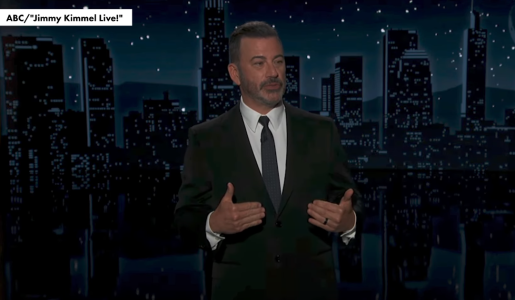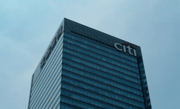The View in trouble? Trump aide behind Kimmel’s suspension now set sights on ABC chat show
- Replies 0
Television fans are used to drama happening on screen, but this time, the real conflict is unfolding behind the cameras.
A major shake-up at one late-night program has spilled over into questions about another daytime staple.
The situation now involves not just celebrities and studios but also federal regulators and the heated national debate over free speech.
With so much at stake, viewers are left wondering how this could reshape the shows they watch every day.
It all started with a monologue. Jimmy Kimmel, a late-night fixture for over two decades, made controversial remarks about the tragic shooting of conservative activist Charlie Kirk.
The fallout was swift and severe: Federal Communications Commission (FCC) Chairman Brendan Carr publicly questioned whether Kimmel’s show—and now, The View—should continue to enjoy the protections and privileges of “bona fide news programs” under the FCC’s equal opportunity rules.
Carr’s comments, made during a CNN interview, were pointed: “I would assume you can make the argument that The View is a bona fide news show, but I’m not so sure about that. And I think it’s worthwhile to have the FCC look into whether The View and some of these other programs still qualify as bona fide news programs.”
For those of us who’ve watched The View’s hosts—Whoopi Goldberg, Joy Behar, Sunny Hostin, Sara Haines, and Alyssa Farah Griffin—debate everything from politics to pop culture, the idea of the show being investigated by the FCC is both surreal and unsettling.

Kimmel’s show was “pre-empted indefinitely” by ABC, a move that sent shockwaves through Hollywood and beyond.
The decision came after Carr hinted at a possible FCC investigation and just hours before Kimmel was set to tape his next episode.
The timing was no coincidence, and the message was clear: the government is watching, and the consequences for crossing certain lines could be severe.
The reaction was immediate and polarized. Supporters of Kimmel, including celebrities like Damon Lindelof, Jean Smart, and Henry Winkler, decried the move as an attack on free speech. Unions like the Writers Guild of America and the Producers Guild of America issued statements defending the right to dissent and warning against government overreach.
On the other side, conservative commentators and politicians cheered the decision, arguing that Kimmel’s comments were beyond the pale and that media figures should be held accountable for spreading misinformation or inciting division.
At the heart of the FCC’s scrutiny is a fundamental question: What is The View? Is it a news program, an entertainment show, or a hybrid of both?
The answer matters because the FCC’s “equal opportunity” rule requires broadcasters to provide comparable airtime to political candidates on bona fide news programs.
If The View loses that status, it could face new restrictions, oversight, or even the threat of being pulled from the air.
This isn’t just a technicality. It’s a debate about the role of opinion, satire, and commentary in American media.
Shows like The View and Jimmy Kimmel Live! have long blurred the lines between news and entertainment, offering a mix of headlines, humor, and heated debate.
For many viewers—especially those of us who remember the days of Walter Cronkite and Barbara Walters—this evolution has been both exciting and, at times, confusing.
The timing of these controversies is no accident. With a presidential election looming, the battle over who gets to speak—and who gets silenced—has never been more intense.
President Donald Trump has openly mused about revoking broadcast licenses from networks that criticize him, while his allies in the FCC are flexing their regulatory muscles.
Meanwhile, politicians like California Governor Gavin Newsom and former President Barack Obama have condemned the suspension of Kimmel’s show as a dangerous escalation of “cancel culture” and government coercion.
“This is precisely the kind of government coercion that the First Amendment was designed to prevent,” Obama warned.
Also read: Fox News launches new weekend shows—with Kayleigh McEnany, Peter Doocy, and more familiar faces
The Kimmel saga has become a Rorschach test for America’s political and cultural divides. Protesters have gathered outside Disney Studios in Burbank, unions have called for solidarity, and social media is ablaze with hashtags like #FreeJimmyKimmel.
At the same time, conservative voices are celebrating what they see as long-overdue accountability for a media landscape they believe is biased against them.
Even within the media, there’s little consensus. MSNBC’s Chris Hayes, for example, supported the firing of Tucker Carlson but condemned Kimmel’s suspension as an attack on free speech.
The debate has exposed the inconsistencies and double standards that often shape our conversations about media, politics, and the First Amendment.
Read next: A former face of Bay Area news arrested again after causing “serious injury”—his tragic spiral deepens

Do you think the FCC should investigate shows like The View? Is the suspension of Jimmy Kimmel Live! a necessary step or a dangerous precedent? How do you feel about the role of opinion and satire in today’s media landscape?
A major shake-up at one late-night program has spilled over into questions about another daytime staple.
The situation now involves not just celebrities and studios but also federal regulators and the heated national debate over free speech.
With so much at stake, viewers are left wondering how this could reshape the shows they watch every day.
It all started with a monologue. Jimmy Kimmel, a late-night fixture for over two decades, made controversial remarks about the tragic shooting of conservative activist Charlie Kirk.
The fallout was swift and severe: Federal Communications Commission (FCC) Chairman Brendan Carr publicly questioned whether Kimmel’s show—and now, The View—should continue to enjoy the protections and privileges of “bona fide news programs” under the FCC’s equal opportunity rules.
Carr’s comments, made during a CNN interview, were pointed: “I would assume you can make the argument that The View is a bona fide news show, but I’m not so sure about that. And I think it’s worthwhile to have the FCC look into whether The View and some of these other programs still qualify as bona fide news programs.”
For those of us who’ve watched The View’s hosts—Whoopi Goldberg, Joy Behar, Sunny Hostin, Sara Haines, and Alyssa Farah Griffin—debate everything from politics to pop culture, the idea of the show being investigated by the FCC is both surreal and unsettling.

The move has unsettled fans who tune in for its mix of opinion, news, and lively exchanges. Image source: New York Post / Youtube
Kimmel’s show was “pre-empted indefinitely” by ABC, a move that sent shockwaves through Hollywood and beyond.
The decision came after Carr hinted at a possible FCC investigation and just hours before Kimmel was set to tape his next episode.
The timing was no coincidence, and the message was clear: the government is watching, and the consequences for crossing certain lines could be severe.
The reaction was immediate and polarized. Supporters of Kimmel, including celebrities like Damon Lindelof, Jean Smart, and Henry Winkler, decried the move as an attack on free speech. Unions like the Writers Guild of America and the Producers Guild of America issued statements defending the right to dissent and warning against government overreach.
On the other side, conservative commentators and politicians cheered the decision, arguing that Kimmel’s comments were beyond the pale and that media figures should be held accountable for spreading misinformation or inciting division.
At the heart of the FCC’s scrutiny is a fundamental question: What is The View? Is it a news program, an entertainment show, or a hybrid of both?
The answer matters because the FCC’s “equal opportunity” rule requires broadcasters to provide comparable airtime to political candidates on bona fide news programs.
If The View loses that status, it could face new restrictions, oversight, or even the threat of being pulled from the air.
This isn’t just a technicality. It’s a debate about the role of opinion, satire, and commentary in American media.
Shows like The View and Jimmy Kimmel Live! have long blurred the lines between news and entertainment, offering a mix of headlines, humor, and heated debate.
For many viewers—especially those of us who remember the days of Walter Cronkite and Barbara Walters—this evolution has been both exciting and, at times, confusing.
The timing of these controversies is no accident. With a presidential election looming, the battle over who gets to speak—and who gets silenced—has never been more intense.
President Donald Trump has openly mused about revoking broadcast licenses from networks that criticize him, while his allies in the FCC are flexing their regulatory muscles.
Meanwhile, politicians like California Governor Gavin Newsom and former President Barack Obama have condemned the suspension of Kimmel’s show as a dangerous escalation of “cancel culture” and government coercion.
“This is precisely the kind of government coercion that the First Amendment was designed to prevent,” Obama warned.
Also read: Fox News launches new weekend shows—with Kayleigh McEnany, Peter Doocy, and more familiar faces
The Kimmel saga has become a Rorschach test for America’s political and cultural divides. Protesters have gathered outside Disney Studios in Burbank, unions have called for solidarity, and social media is ablaze with hashtags like #FreeJimmyKimmel.
At the same time, conservative voices are celebrating what they see as long-overdue accountability for a media landscape they believe is biased against them.
Even within the media, there’s little consensus. MSNBC’s Chris Hayes, for example, supported the firing of Tucker Carlson but condemned Kimmel’s suspension as an attack on free speech.
The debate has exposed the inconsistencies and double standards that often shape our conversations about media, politics, and the First Amendment.
Read next: A former face of Bay Area news arrested again after causing “serious injury”—his tragic spiral deepens
Key Takeaways
- The suspension of Jimmy Kimmel Live! by ABC, following controversial comments about the killing of Charlie Kirk, has sparked a fierce debate over free speech, censorship, and government intervention in the media, with criticism coming from all sides of the political spectrum.
- FCC Chairman Brendan Carr's threats of a federal investigation into ABC and discussion of The View's news credentials have raised further concerns about political influence and possible regulatory retaliation against networks broadcasting content critical of the Trump administration.
- Industry figures, unions, and numerous celebrities have condemned ABC's decision as a dangerous precedent for cancelling shows and silencing dissent, while others, including Donald Trump and several conservatives, have celebrated the suspension as justified due to falling ratings and on-air statements.
- The future of Jimmy Kimmel Live! remains uncertain, with widespread speculation about whether the show will return, as ABC, Disney, and major affiliate groups navigate a highly charged political climate and ongoing government scrutiny.






